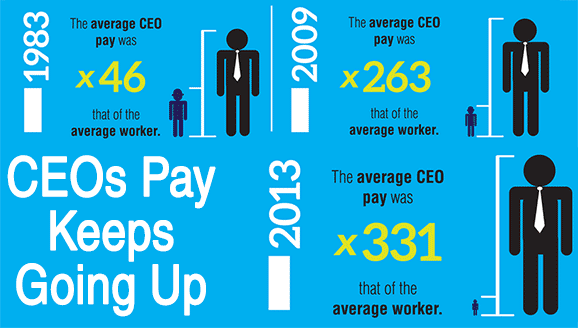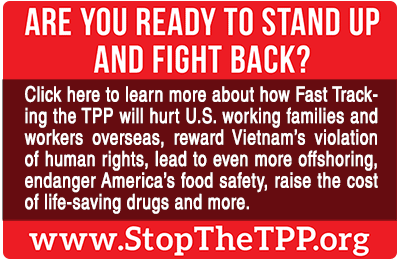Search News
For the Media
For media inquiries, call CWA Communications at 202-434-1168 or email comms@cwa-union.org. To read about CWA Members, Leadership or Industries, visit our About page.
Also in Winter 2014
- In 2015: It's Our Turn -- Bargaining, Jobs and Fairness
- The American Public Supports Fairness
- 2015 Bargaining: It's Our Turn
- No Fast Track, NO TPP: A Fight We Can Win
- Fighting for Workplace Scheduling Rights Legislation
- Fighting Back Against the Attack on the NLRB
- Good Jobs & Good Wages - It's Our Turn
3 Big Forces Are PUshing Down Wages and Destroying Good Jobs
Collective Bargaining Coverage Lower Than Ever
Just 6 percent of U.S. private sector workers have bargaining rights, and public workers are under attack in the states.
What’s the Connection?
Without bargaining rights, millions of U.S. workers have no way to gain their fair share of a company’s profits. For union members, it’s as if all the nonunion workers in our industry are sitting across the bargaining table from us, helping our employers push down our wages.
Corporations Make More Money and Exert More Control Over Our Democracy

Since the 1970s, corporations and the 1 percent have been grabbing a growing share of productivity gains. Today, the gap between average weekly earnings and increased productivity is the widest it’s ever been.
What’s the Connection?
This disconnect between wages and productivity means that corporations and the 1 percent keep even more money. And what are they doing with it? They’re spending a chunk of those dollars to elect politicians who support policies like tax breaks for the rich, bad trade deals and attacks on collective bargaining.
Bad Trade Deals Reward Investors and Push Wages Down
We’ve seen 20 years of bad trade deals like the North American Free Trade Agreement – NAFTA. The proposed Trans-Pacific Partnership is even worse. TPP would affect manufacturing and service sector work, like our call center jobs. And it would give huge advantages to corporations and investors.
What’s the Connection?
As corporations send more jobs offshore, that puts pressure on bargaining for wages and working conditions. Some corporations use these trade deals to threaten U.S. workers by saying: “we can always move these jobs overseas.”
Corporations already are lining up to take advantage of the 28-cent an hour minimum wage in Vietnam,
one of the TPP partner countries.
